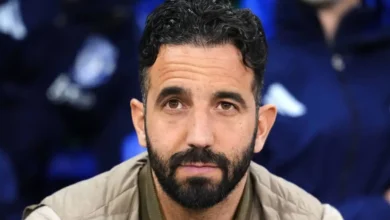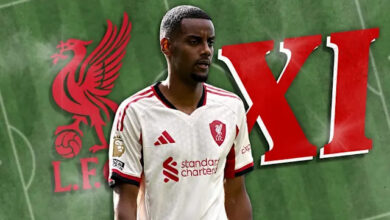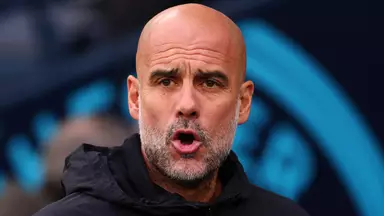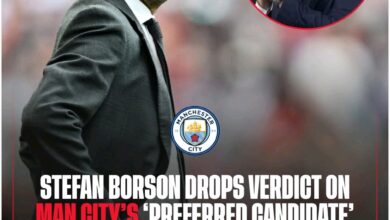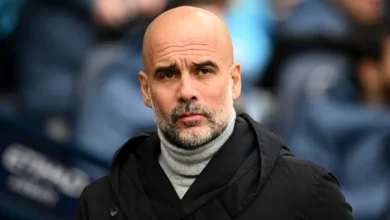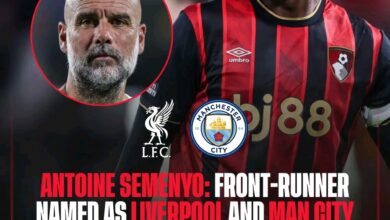Pep Guardiola revealed the club he will retired
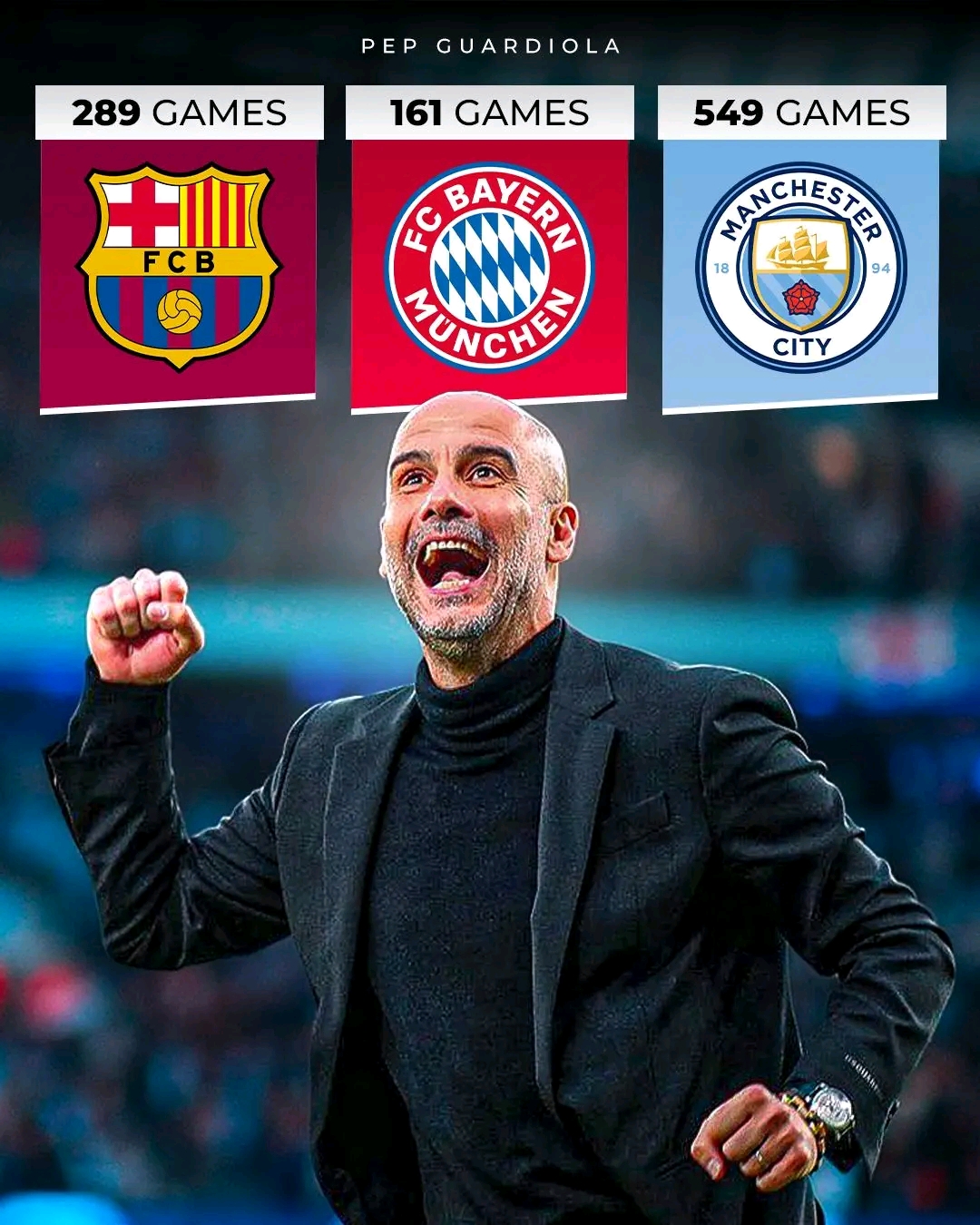
Pep Guardiola has finally said the words everyone at Manchester City has been afraid to hear for years. The Catalan genius who turned City into a football machine, who brought a style so perfect it changed English football forever, has given his clearest hint yet that the end might be closer than anyone thought. And it’s not a rumor this time—it came straight from him, with the kind of quiet honesty that only someone who knows what he has achieved can speak with. Just weeks before the new Premier League season begins, Guardiola has admitted that his time at City is running out, and when it ends, he will stop, not just leave for another job, but stop completely
For many City fans, this moment feels unreal. They’ve heard whispers before. They’ve seen his body language change after tough defeats. They remember him saying in old interviews that he wouldn’t coach forever. But hearing him admit he is planning to stop after his Manchester City chapter is like watching a bright light begin to dim slowly, and no one knows when darkness will fully fall. Guardiola said it clearly in his interview with Spanish GQ: “After this stage with City, I’m going to stop. That’s for sure. It’s decided. More than decided.”
Those words hit harder than any transfer news. Because this isn’t just about a manager leaving a club. It’s about the possible end of an era that has defined football itself. Pep Guardiola’s football has been like a religion at Manchester City—a philosophy of movement, perfection, control, and courage. Under him, City became more than a club—they became a symbol of modern football’s beauty. From the treble-winning season to the relentless title races, from the way he turned players like John Stones into midfielders and Phil Foden into stars, Guardiola has been the heartbeat of Manchester City. But now, he sounds like a man who knows that heartbeat will eventually slow down.
The last season, by Pep’s own standards, was below par. City failed to win any silverware, and that hurt. The fans could see it in his eyes after the Champions League exit, after losing the league to Arsenal, and after a painful FA Cup defeat. He stayed calm in public, but those close to him said he looked tired, maybe even emotionally drained. So this summer, City moved fast. Rayan Ait-Nouri, Rayan Cherki, Tijjani Reijnders, Marcus Bettinelli, and teenage talent Sverre Nypan all joined early in the transfer window. Another goalkeeper, James Trafford, is expected to follow. The club has been preparing for a fresh start, but Guardiola’s words now put everything in a different light. Could this be his final attempt to rebuild City before walking away
When asked about retirement, Pep didn’t talk like a man making a plan. He spoke like a man reflecting on life. “I don’t know,” he said. “After this stage with City, I’m going to stop. I don’t know how long I’ll stop for—a year, two, five, ten, I don’t know. But I need to stop and focus on myself, on my body.” These are not the words of a coach thinking about his next challenge. These are the words of someone who has given everything and now feels the weight of it. Guardiola even said he wants to do what people in his hometown of Catalonia call “badar”—to just stop, relax, and watch life go by. He compared it to his grandfather’s saying about cows watching the train go by, just standing there, doing nothing, just being. That’s what he wants—to just exist for a while after years of endless motion.
And maybe that’s understandable. Pep Guardiola has been running on football adrenaline since the late 1980s. From playing for Barcelona’s dream team under Johan Cruyff, to managing Barcelona’s golden era, then going to Bayern Munich, and finally to Manchester City—his entire adult life has been about tactics, perfection, and pressure. He’s won everything. He’s changed the game. But perfection, as beautiful as it is, comes with a cost. The constant drive to outthink everyone, to improve, to adapt, drains even the most brilliant minds.
Many fans have wondered if Guardiola’s intensity has a limit. He’s known for overanalyzing everything, for staying awake deep into the night watching matches, for trying new ideas even when his teams are already the best. That obsession is what makes him special—but it also burns energy faster than anyone else. And now, maybe, he’s feeling that burn.
He said something else that made people pause. “We think we’re in control, but no,” he said. “Something always happens that puts something in front of me, and I’ll say: do I want to do this or not? And if not, I’ll figure it out.” That line captures who Guardiola is—a man who plans everything, but also believes in fate. He knows he can’t plan everything anymore. Maybe after so many years of planning, he wants to live without it.
There’s something poetic about how he described what comes next. “Stop, stop,” he said, repeating the word like he’s convincing himself. “And then we’ll see.” Those words feel heavy, final, and peaceful all at once.
City fans know that the day Guardiola leaves will be the hardest since he arrived in 2016. In nine years, he turned City into a global force. Before him, City were strong, but inconsistent. After him, they became a team that defined a generation. Four Premier League titles in a row, a Champions League, domestic cups, and countless records—it’s a dynasty. But Pep’s impact goes beyond trophies. He changed how football is played in England. Every team, from Arsenal to Brighton, has a touch of Guardiola’s football DNA now. Even managers like Arteta and Xavi carry his lessons. That’s his real legacy.
But what happens when he leaves? That’s the question haunting Manchester City now. Guardiola didn’t say exactly when he’ll step away. His contract runs until 2026, and he’s always said he wouldn’t stay forever. Some believe this could be his final full season, especially if he manages to reclaim the league or win another Champions League. Others think he might stay one more year, just to finish something he started. But either way, the countdown has quietly begun.
Inside the club, people are already thinking about life after Pep. City’s structure is strong—Txiki Begiristain and Ferran Soriano have been with him since the Barcelona days. They know his methods, his rhythm, his culture. But replacing Pep Guardiola is not like replacing any other manager. You can find another coach, but you can’t replace his brain. You can’t replace his presence.
Even players might start thinking differently now. Stars like Erling Haaland, Phil Foden, and Rodri have all spoken about how much Guardiola’s coaching improved them. If he leaves, would they stay long-term? Would they want to rebuild under a new system? Those are questions City will soon have to face.
But for now, Guardiola’s mind is still on this season. Reports say he’s more focused than ever on getting City back to winning ways. The signings are meant to refresh the squad, to give the team more energy and hunger. Guardiola’s training sessions remain as intense as ever. Players say he’s been demanding, sharp, and motivated—almost like a man who knows he’s entering his final act and wants to make it perfect.
The idea of him retiring completely still feels strange. Football without Guardiola feels empty. He’s been one of the central figures of modern football for nearly two decades. But he’s also earned the right to rest. Maybe, after all the trophies, pressure, and glory, he just wants to live a simple life for a while—wake up without thinking about tactics, take a walk without thinking about pressing, and watch the sunset without thinking about the next match.
And yet, knowing Pep, it’s hard to imagine him away for long. Football has a way of calling back its geniuses. He said he doesn’t know if he’ll stop for one year or ten. Maybe he’ll take a break and then find inspiration again. Maybe he’ll discover a new challenge that excites him—a national team, perhaps? He’s often been linked with managing Brazil or Spain. But that’s all for the future. For now, he’s focused on City, one more battle, one more season.
As he said, “Life… I never thought I’d coach, I never thought I’d go to Germany or England.” His career has always surprised him. Maybe his next chapter will too.
But one thing is certain—when he finally walks away, football will feel his absence like a silence after music. Because Guardiola isn’t just a coach. He’s a composer, a thinker, a perfectionist who made football art. And when that art stops, even for a while, the world will feel it.
For City fans, every match from now on will mean more. Every touchline shout, every hug with his players, every press conference smile—it could be part of the last chapter of the greatest manager in their history. Guardiola’s journey has been magic, but like all magic, it was never meant to last forever.
He’s leaving not because he failed, but because he’s finally ready to breathe. To rest. To live. And when he finally sits down somewhere quiet in Catalonia, watching the cows and the trains pass by, maybe he’ll smile, remembering how he made football beautiful, and how the world will never forget him for it.







